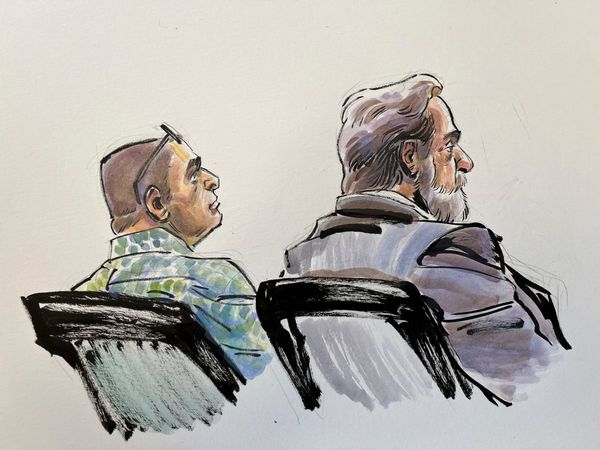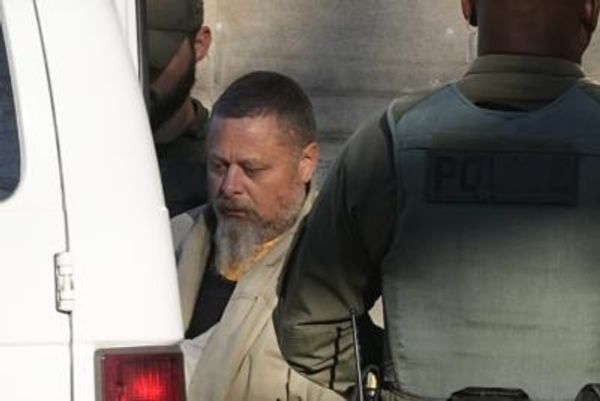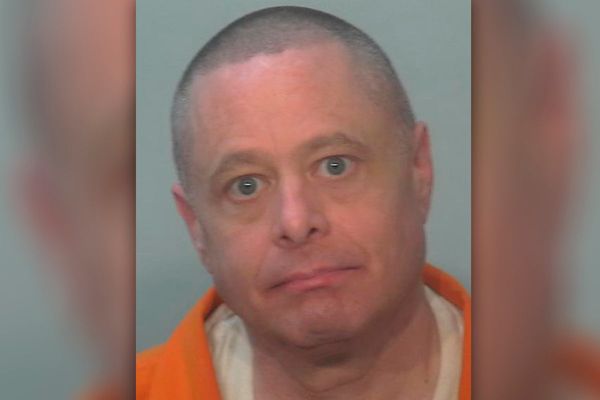
Prosecutors in the trial of Richard Allen, who is accused of killing two teenage girls in Indiana, continued this week to build their case with testimony from a prison psychologist and law enforcement officials who lent credence to the allegation that Allen confessed to the murders while in prison in 2023.
Allen’s alleged admissions came after investigators struggled for years to find the person who killed Liberty “Libby” German, 14, and Abigail “Abby” Williams, 13, in 2017 on a hiking trail outside the small town of Delphi.
Due to a gag order issued by the judge in the case from almost two years ago, attorneys, law enforcement officials, and the victims’ relatives, among others, were prevented from making public comments on the case, according to the Indianapolis Star.
That meant that the public did not, until this week, learn about some of the evidence in the case. The revelations have since generated national attention because the brutal murders went unsolved for years.
In court over the last several days, a number of the witnesses spoke about Allen’s admissions to murdering Abby and Libby as well as his mental state while incarcerated.
Investigators hadn’t made much progress in finding a suspect until 2022, when a volunteer clerk found a document concerning a police interview with Allen three days after the teens disappeared. In that interview, Allen said he was on the trail the day the girls were killed.
“I thought there could be a correlation,” Kathy Shank, a retired government employee who wanted to help investigators in the case, testified last week, the Star reported.
Police, who cleared Allen after the 2017 interview, arrested him about a month after Shank’s discovery.
The Carroll county prosecutor, Nicholas McLeland, argued at the opening of the trial that Allen, who faces two counts of murder and two counts of murder while kidnapping, held a gun and forced Abby and Libby down a hill near the trail and then killed them. The next day, a search party found their bodies with their throats slit in the woods near a creek.
Allen, who worked at a CVS, then “hid in plain sight”, McLeland said.
“For five years, he lived in this community,” he told jurors. “He worked in his community.”
The defense attorney Andrew Baldwin countered that Allen was “truly innocent”; that the investigation “was messed up from the beginning”; that critical pieces of evidence were destroyed; and that Allen had not been on the trail at the same time as Abby and Libby, according to the Star.
“There is reasonable doubt in this case,” Baldwin said.
After becoming a suspect, Allen maintained his innocence for months, but then, according to people who worked at Westville correctional facility in Indiana, he started confessing in March 2023.
A correctional officer testified that Allen said he intended to rape Abby and Libby but became scared so he killed them instead, the Star reported.
Allen, who was held in solitary confinement for 13 months, had started to exhibit abnormal behavior around the time he allegedly started to confess, according to testimony from Dr Monica Wala, a prison psychologist.
In a report, Wala wrote that Allen was clapping and banging on something in his cell. The following day, she wrote that he defecated on himself and was consuming his own feces.
The doctor said that she believed that Allen was acting in a bizarre way to get a visit from his wife and a transfer to another facility. Wala also pointed out that inmates are only supposed to be in solitary confinement for 30 days and that being there for more than a year might have affected his mental health. He was frequently on suicide watch.
A state trooper also testified this week that the voice in a video that Libby recorded on her phone as she was being abducted – where a man is heard saying “Go down the hill” – matched the voice he heard in phone calls that Allen made to his family from prison. Allen repeatedly confessed to his wife during those calls, the Star reported.
“Honey, I did it. I killed Abby and Libby,” Allen said during an April 2023 call to his wife, WTHR, an NBC affiliate, reported. Kathy Allen urged him not to say that.
During a call about a month later, Allen told her: “I think I’ve lost my mind.”
In a cross-examination, the defense focused on Wala’s interest in true crime stories, which included visiting the crime scene and following Allen’s case on podcasts, YouTube and Facebook, ABC7 reported.
On Friday, the defense started to call witnesses, including Dr Deanna Dwenger, executive director of mental health services for the Indiana department of correction. She testified that she though it was “unusual” for Wala to visit a crime scene related to someone she was working with but that the trip occurred before Wala started treating Allen.
Dwenger also testified that Allen was not diagnosed with serious mental illness when he first entered the prison but became mentally ill around the time he started confessing to the murders. He also noted that the mental health staff had diagnosed Allen as “gravely disabled”, the Star reported.
A juror asked how a psychiatrist can tell if someone is feigning psychosis.
Dwenger said the clinician listens to body language and the chain of the story; if it’s organized, the person is probably faking psychosis, ABC7 reported.
If it is disorganized and out of chronological order, then it’s more likely the person is psychotic or delusional, Dwenger said.










